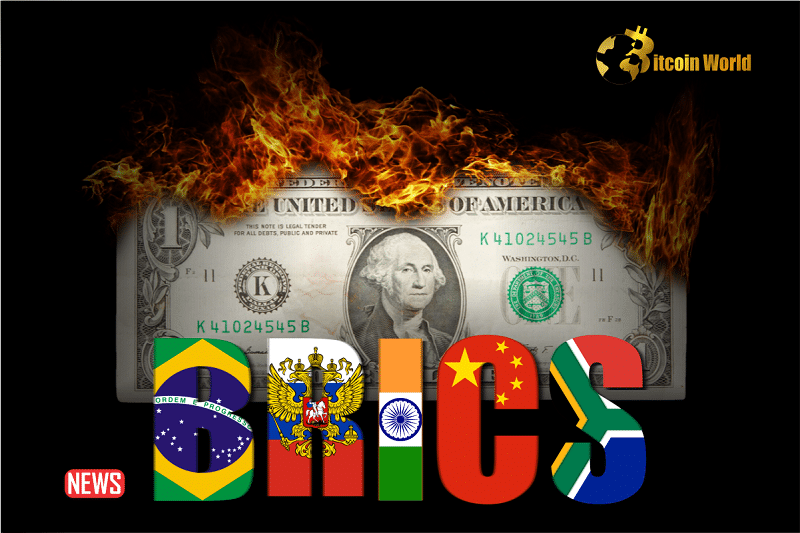The global financial landscape is undergoing a seismic shift. For decades, the US dollar has reigned supreme, but the BRICS nations are mounting a challenge. Is this the beginning of the end for the dollar’s dominance? Let’s dive into the details.
BRICS Intensifies Efforts to End US Dollar Dominance
- BRICS nations are actively promoting trade in local currencies.
- They are exploring the development of a BRICS currency to challenge the dollar’s hegemony.
Following the expansion of the alliance to ten nations in August 2023, these countries have ramped up their efforts to conduct trade in local currencies and are in the process of developing a BRICS currency, aimed squarely at reducing the hegemony of the US dollar in global markets.
BRICS Drive Towards De-Dollarization
Russia and China are leading the charge, forging agreements to bypass the US dollar in bilateral trade.
Russian Prime Minister Mikhail Mishustin highlighted the growing business ties between Russia and China, with bilateral trade reaching an impressive “$200 billion ahead of schedule.”
This burgeoning alliance signifies a significant challenge to the US dollar, which has been on a 20-year decline, reflecting a shift in international sentiment against its global reserve currency status.
The momentum for de-dollarization is gaining traction, with at least 16 new countries expressing interest in joining BRICS.
This expanding alliance could further diminish the influence of the US dollar. Discussions throughout 2023 about a BRICS currency, combined with the overall efforts to move away from the dollar, are laying the groundwork for what could be a pivotal year in 2024 for global financial markets.
See Also: Iran Joins BRICS In Plot To Permanently Dethrone The US Dollar
What are the Challenges and Implications of De-dollarization?
De-dollarization isn’t a walk in the park. The US dollar has been the bedrock of global trade for decades. Replacing it requires navigating complex changes.
Despite growing support for BRICS, the world still heavily relies on the US dollar.
The alliance, by amplifying the voices of developing nations, could potentially gain more support for its mission.
If these countries join the bloc and engage in trade using BRICS or local currencies, it could spell trouble for the US dollar. Yet, the transition will require a concerted and sustained effort.
The case of India within the BRICS framework illustrates some of these challenges.
Despite convincing 22 countries to accept the Rupee for international trade, India has found little enthusiasm for holding the Rupee in reserves, as the currency’s global demand and strength are lacking.
Complications have also arisen in trade with its BRICS counterpart, Russia, highlighting the complexities of moving away from established currencies like the US dollar and the Chinese Yuan.
A Multipolar Financial Future?
As BRICS promotes local currency settlements and considers its own currency, a shift away from the dollar seems inevitable.
Data from Wolf Street indicates that the bloc efforts are contributing to the US dollar’s ongoing decline, with a notable decrease in dollar-denominated foreign exchange reserves globally.
The rise in prominence of smaller currencies in the global reserve and the gradual decline of the US dollar reflect the shifting geopolitical landscape.
See Also: BRICS Won’t Succeed In Killing The Dollar: Bank Of America
The increasing use of local currencies by smaller nations, particularly in the global south, underlines the potential for a more multipolar financial world.
In Conclusion: A New World Order?
BRICS’ aggressive push towards de-dollarization and the development of its currency in 2024 represent a formidable challenge to the long-standing dominance of the US dollar.
While obstacles and complexities abound, the concerted efforts of the BRICS nations and their expanding alliance could significantly alter the global financial landscape, leading to a more diversified and multipolar economic order.
Disclaimer: The information provided is not trading advice, Bitcoinworld.co.in holds no liability for any investments made based on the information provided on this page. We strongly recommend independent research and/or consultation with a qualified professional before making any investment decisions.




